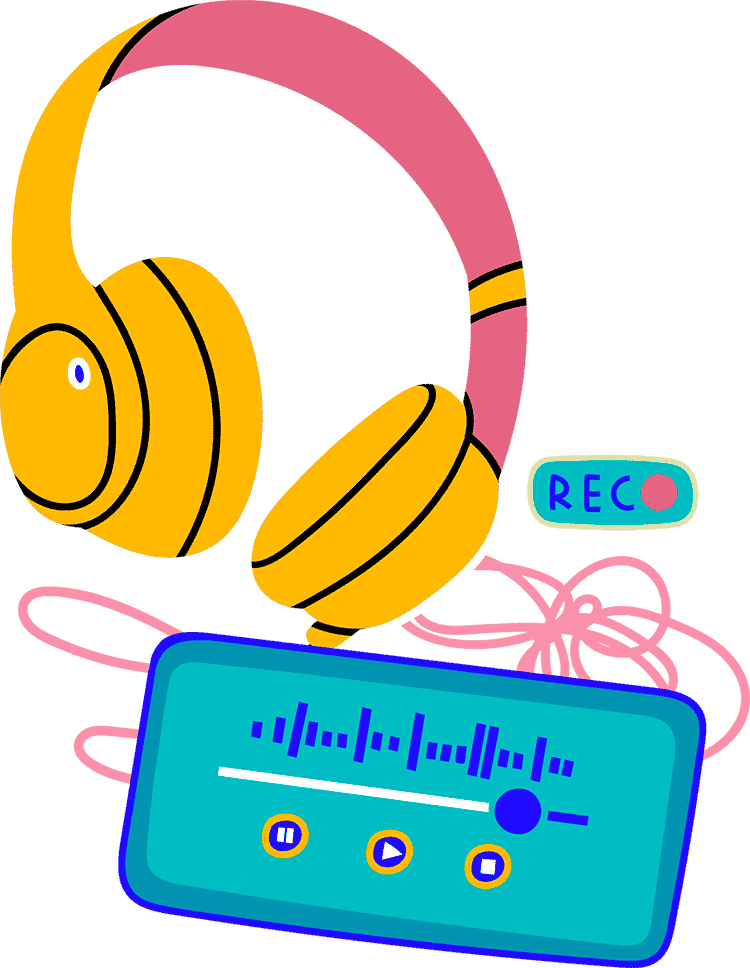Optimizing Your Podcast Strategy for Maximum Engagement and Growth
In today’s digital landscape, podcasts have emerged as a powerful medium for brands to connect with their audiences on a deeper level. However, crafting a successful podcast requires more than just interesting content; it demands a well-thought-out strategy that balances creative storytelling with strategic business objectives. This comprehensive guide delves into advanced techniques and current trends that will help you elevate your podcast strategy, ensuring it not only entertains but also drives tangible business results.
Developing a Robust Podcast Promotion Strategy
Understanding Market Trends
The podcast industry is experiencing exponential growth, with projections indicating it could reach a staggering $4 billion by the end of 2024 and expand to over 3 million podcasts. This tremendous growth presents an unprecedented opportunity for content creators and advertisers to leverage podcasts as a potent marketing tool. As the market becomes increasingly saturated, standing out from the crowd becomes more challenging, making a strategic approach to podcast creation and promotion more crucial than ever.
To capitalize on this growth, it’s essential to stay abreast of emerging trends in podcast consumption. For instance, the rise of smart speakers and in-car entertainment systems has opened up new avenues for podcast listening, potentially influencing the optimal length and format of your episodes. Additionally, the growing popularity of video podcasts on platforms like YouTube suggests that considering a multi-format approach could expand your reach significantly.
SEO and Discoverability
In the vast sea of podcasts, ensuring your show is easily discoverable is paramount. With approximately 30% of new podcast listeners finding shows through internet searches, implementing a robust SEO strategy is no longer optional—it’s essential. This statistic underscores the critical need for podcast creators to optimize their content for search engines, significantly boosting visibility and attracting new listeners.
To enhance your podcast’s SEO:
1. Craft descriptive and keyword-rich titles for your podcast and individual episodes.
2. Write detailed show notes that include relevant keywords naturally.
3. Create transcripts of your episodes, which not only improves accessibility but also provides search engines with more content to index.
4. Utilize relevant tags and categories in podcast directories.
5. Encourage listeners to leave reviews, as these can improve your podcast’s ranking in directories.
Remember, SEO for podcasts extends beyond just the audio content. Your podcast’s website, social media profiles, and any associated blog posts should also be optimized to create a cohesive and discoverable online presence.
Key Considerations in Crafting Podcast Content
Cultural and Linguistic Diversity
As the podcast market expands globally, considering cultural and linguistic diversity in your content strategy becomes increasingly important. For example, Spanish-language podcasts are experiencing rapid growth, particularly in regions with large Spanish-speaking populations such as Mexico and Spain. This trend highlights the potential for reaching new audiences by creating content in multiple languages or focusing on culturally specific themes.
To effectively incorporate cultural and linguistic diversity:
1. Research your target audience’s cultural preferences and linguistic needs.
2. Consider creating separate podcast series for different languages or cultural groups.
3. If producing a multilingual podcast, ensure high-quality translations and use native speakers for narration.
4. Incorporate culturally relevant topics, references, and guests to resonate with specific audiences.
By embracing diversity in your podcast strategy, you not only broaden your potential audience but also create more inclusive and engaging content that can foster stronger connections with listeners from various backgrounds.
Engagement Through Quality Content
In the increasingly competitive podcast landscape, quality trumps quantity. Podcast listeners are becoming more discerning, seeking out content that not only aligns with their interests but also offers valuable insights and engaging narratives. To create content that truly resonates:
1. Develop a clear value proposition for your podcast. What unique perspective or information are you offering listeners?
2. Invest in high-quality audio production to ensure a pleasant listening experience.
3. Structure your episodes thoughtfully, with clear introductions, engaging middle sections, and satisfying conclusions.
4. Incorporate storytelling techniques to make your content more compelling and memorable.
5. Regularly seek feedback from your audience and be willing to adapt your content based on their preferences.
Remember, engaging content is more likely to keep listeners’ attention, foster loyalty, and encourage sharing, ultimately driving the growth of your podcast.
Exploring Successful Podcast Marketing Examples
Case Study: Staffbase’s “Infernal Communication“
Staffbase’s approach to podcasting serves as an excellent example of effective brand podcasting. By focusing on internal communications professionals, Staffbase successfully grew its brand awareness and authority in the field. Their strategy involved:
1. Targeting a specific niche audience with highly relevant content.
2. Consistently delivering high-quality, informative episodes.
3. Featuring industry experts and thought leaders as guests.
4. Integrating the podcast with their overall content marketing strategy.
5. Using the podcast as a platform to showcase their expertise in internal communications.
This targeted approach not only helped Staffbase establish itself as a thought leader in the industry but also created a valuable resource for their target audience, indirectly driving interest in their products and services.
Adhering to B2B Podcast Best Practices
Data-Driven Strategies
The podcast industry is increasingly embracing advanced analytics to gain deeper insights into listener behavior and preferences. This data-driven approach allows creators to tailor their content more effectively to audience needs, enhancing both engagement and effectiveness. Key metrics to focus on include:
1. Listener demographics
2. Episode completion rates
3. Drop-off points within episodes
4. Popular topics or episode formats
5. Listener engagement across different platforms
By analyzing these metrics, you can make informed decisions about content creation, episode length, release schedules, and promotional strategies. For instance, if data shows that listeners tend to drop off after 30 minutes, you might consider shortening your episodes or restructuring them to place the most important content earlier.
Integration of AI in Podcast Production
Artificial Intelligence is revolutionizing podcast production, offering tools that streamline processes such as transcription, editing, and audio enhancement. These technologies not only save time but also improve the overall quality of podcasts, making them more appealing to listeners. Some ways AI is being integrated into podcast production include:
1. Automated transcription services for quick and accurate episode transcripts.
2. AI-powered editing tools that can remove background noise and enhance audio quality.
3. Content recommendation algorithms to suggest relevant topics or guests based on listener preferences.
4. Voice cloning technology for creating consistent intros or outros, even when recording isn’t possible.
5. Sentiment analysis tools to gauge audience reactions to different topics or segments.
By leveraging these AI technologies, podcast creators can focus more on content creation and strategy, while ensuring a high-quality, polished final product.
Developing a Comprehensive Podcast Business Strategy
Insights into listener demographics and behavior are crucial not only for content production but also for promoting your podcast effectively. This data helps marketers optimize their content and podcast marketing strategies to maximize ROI. To develop a comprehensive podcast business strategy:
1. Define clear, measurable objectives for your podcast. Are you aiming to increase brand awareness, generate leads, or establish thought leadership?
2. Identify your target audience and create detailed listener personas.
3. Develop a content calendar that aligns with your business goals and audience interests.
4. Create a multi-channel promotion plan, including social media, email marketing, and cross-promotion with other podcasts or influencers.
5. Establish partnerships or sponsorships that align with your brand and provide value to your listeners.
6. Regularly review and adjust your strategy based on performance data and feedback.
Remember, a successful podcast business strategy should align closely with your overall marketing and business objectives, ensuring that your podcast serves as an integral part of your broader marketing ecosystem.
Putting It All Together
As you refine your podcast strategy, remember that the key to success lies in striking the right balance between creative, engaging content and strategic business objectives. Stay informed about the latest trends, understand your audience deeply, and leverage emerging technologies to create a podcast that not only captivates but also converts.
Consider these final tips as you implement your enhanced podcast strategy:
1. Consistency is key. Establish a regular release schedule and stick to it to build listener habits.
2. Engage with your audience beyond the podcast. Use social media, email newsletters, and live events to foster a community around your show.
3. Continuously educate yourself about the podcast industry. Attend conferences, join podcast creator communities, and stay updated on industry news.
4. Be patient. Building a successful podcast takes time. Focus on creating value for your listeners, and growth will follow.
5. Don’t be afraid to experiment. Try new formats, topics, or promotional strategies, and learn from both successes and failures.
By implementing these strategies and continuously refining your approach, you’ll be well-positioned to create a podcast that not only engages your audience but also drives meaningful results for your business. Remember, in the world of podcasting, the blend of art and science is what truly sets the exceptional apart from the ordinary.
Roger transitioned from a 22 year career in advertising account management to co-founding JAR, a podcast podcast production agency. As CEO of JAR, he propels the company’s growth by prioritizing audience engagement and podcast marketing. Under his guidance, JAR flourishes with a global clientele, aiming to broaden its reach across North America and revolutionize brand connections through immersive storytelling.


